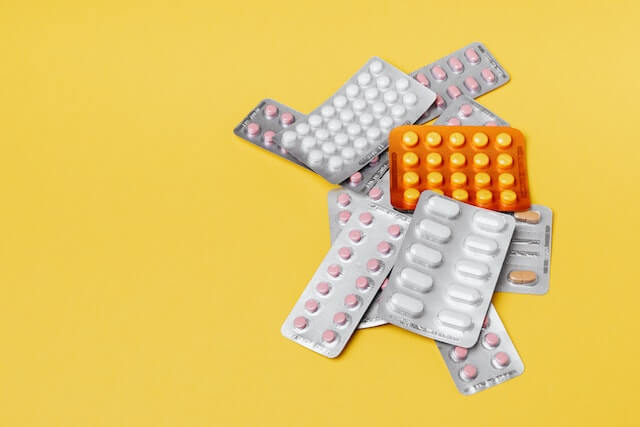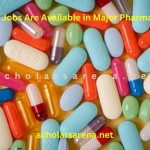No, pharmacists are not doctors. Many people address pharmacists as “doctors,” but a PharmD degree is a doctorate. It’s similar to a Doctor of Medicine (MD) or Doctor of Dental Surgery (DDS) degree, but not the same.
Are Pharmacists Doctors?
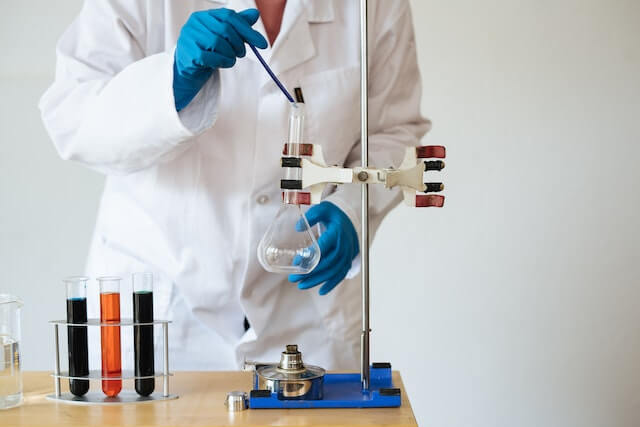 One frequent query that comes up when talking about healthcare professionals is the difference between doctors and pharmacists. It is essential to understand the distinctions between the two, even though they both play crucial roles in patient care. Even though they know about pharmaceuticals and their effects, pharmacists are not considered medical professionals.
One frequent query that comes up when talking about healthcare professionals is the difference between doctors and pharmacists. It is essential to understand the distinctions between the two, even though they both play crucial roles in patient care. Even though they know about pharmaceuticals and their effects, pharmacists are not considered medical professionals.
They receive in-depth instruction in pharmacy, concentrating on dosage estimates, pharmacological therapy, and medication management. On the other hand, doctors are trained to diagnose and treat ailments, prescribe prescriptions, and carry out medical procedures. They are professionals who have medical degrees. To give patients thorough and secure medical care, both professions work together.
In the technical sense, pharmacists are not doctors. A professional pharmacist must first obtain a PharmD or Dr. of Pharmacy. However, many degrees confer the title of doctor on workers, not in the medical field.
Differences Between Pharmacists And Doctors
Pharmacists and doctors have distinct roles within the healthcare system. Doctors diagnose and treat illnesses, prescribe medications, and perform medical procedures. Pharmacists specialize in medication management, dispensing prescriptions, and educating patients on drug interactions and side effects.
Here are the 5 differences between Pharmacists and doctors:
1. Definition
Doctors are experts who assess patients, diagnose their medical ailments, and choose the best course of therapy for them. Doctors are typically the patient’s initial point of contact after receptionists and hospital clerks upon entering the hospital. Pharmacists, however, ensure that you receive the correct prescription from the doctor. They will also explain how and when to take your medication so that you can heal as quickly as possible. However, in rare situations, the pharmacist may also give primary medical treatment, such as flu vaccines or general health tests. Pharmacists typically work in drug stores or other retail settings. Some will, however, be found in hospitals.
2. Education
To become a doctor, you must complete years of rigorous study, then pursue a Master’s degree in a different specialty. Meanwhile, after graduation, you will begin your apprenticeship training under the supervision of senior doctors. So, after four to six years of studying for an undergraduate medical degree, you’ll spend another four to six years pursuing a Master’s degree.
On the other hand, while studying pharmacy is as demanding as studying medicine, it takes less time. Perhaps only four years. To become a pharmacist, you will often study pharmacology, pharmaceutical chemistry, physiology, and other related fields. You’ll learn to look for potential drug interactions along the way. This is because, while practicing, you may come across patients treated by more than one doctor.
You’ll need to go through the patient’s drug list and advise them on possible warning flags to look for from treatments. You’ll also notify doctors if you notice a patient’s medications are causing them damage. As a result, your training will cover every medicine on the market.
3. Accreditation
The Center for Pharmacy Practice Accreditation is the primary accreditation authority for pharmacists (CPPA). They accredit healthcare organizations, such as pharmacies, and guarantee that their quality is acceptable.
On the other hand, the American Medical Association is the primary accreditation authority for physicians and medical doctors. The organization promotes public health by ensuring that physicians and healthcare facilities provide high-quality care to the public.
4. Responsibilities
As a doctor, one of your obligations will be to gather information about your patient’s health and symptoms. You’ll also need to update their files, send them to other doctors for testing or evaluations, and give them their diagnosis.
On the other hand, your employment as a pharmacist entails giving general advice regarding health issues. When you work in large firms that include pharmacy technicians and interns, you will also have to manage them. You should validate prescriptions and detect potential issues with the patient’s medication.
5. Salaries
You can earn money as a pharmacist if you have a PharmD or a Dr of Pharmacy. The same is true for the doctor. Jobs in the medical field are often hot and always in demand. A Dr of Pharmacy can expect an annual income of $127,516.
On the other hand, a Bachelor of Medicine, Bachelor of Surgery (MBBS), or Doctor of Medicine (MD) degree can bring you an annual salary of $201,860.
Are Pharmacists Called Doctors
You most likely do not address your pharmacist as a “doctor.” Pharmacists will most likely identify themselves by their first name if you encounter them at your local apothecary.
How to become a pharmacist
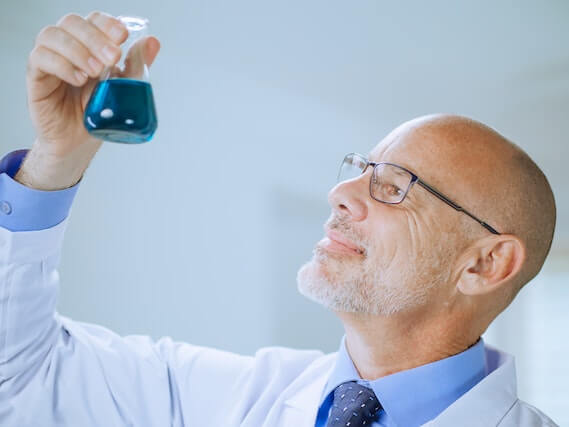 Becoming a pharmacist requires rigorous education, practical training, and licensure. By following these steps, aspiring Pharmacists can embark on a rewarding journey toward becoming licensed healthcare professionals.
Becoming a pharmacist requires rigorous education, practical training, and licensure. By following these steps, aspiring Pharmacists can embark on a rewarding journey toward becoming licensed healthcare professionals.
Here are 5 steps required to become a pharmacist:
1. Obtain a Bachelor’s Degree
The first step is to complete a bachelor’s degree, typically in a science-related field such as biology, chemistry, or pharmaceutical sciences. This foundational education provides a solid science background and prepares aspiring pharmacists for rigorous coursework.
2. Complete a Doctor of Pharmacy (Pharm.D.) Program
After obtaining a bachelor’s degree, aspiring pharmacists must enroll in and complete a Doctor of Pharmacy (Pharm.D.) program accredited by the Accreditation Council for Pharmacy Education (ACPE). The Pharm.D. program typically takes four years to complete, including classroom instruction, laboratory work, and experiential rotations.
3. Gain Practical Experience through Internships
Pharm.D. students must complete internships or rotations in various pharmacy settings to further enhance their skills and knowledge. These hands-on experiences provide valuable exposure to different aspects of pharmacy practice, including community pharmacy, hospital pharmacy, and clinical pharmacy.
4. Obtain a Pharmacist License
Upon graduation from a Pharm.D. program, aspiring pharmacists must pass the licensure examination administered by the state board of pharmacy. Requirements may vary by state but typically involve passing the North American Pharmacist Licensure Examination (NAPLEX) and the Multistate Pharmacy Jurisprudence Examination (MPJE). Some states may have additional requirements, such as a law exam or a certain number of internship hours.
5. Consider Specialization Or Postgraduate Training
After obtaining a pharmacist license, individuals may pursue specialized training through residency programs or fellowships. These programs provide focused training in clinical pharmacy, research, or specialized patient populations and can enhance career prospects and expertise in specific fields.
How long does it take to become a pharmacist?
On average, it takes a minimum of 6 to 8 years to complete the requirements to become a licensed Pharmacist.
Here’s a breakdown of the time to become a pharmacist:
1. Bachelor’s Degree
The first step is obtaining a bachelor’s degree, which usually takes 4 years. This duration may vary depending on the program and individual circumstances.
2. Doctor of Pharmacy (Pharm.D.) Program
After earning a bachelor’s degree, pharmacists enroll in and complete a Pharm.D. program. Pharm.D. programs typically take 4 years to finish. Students undergo classroom instruction, laboratory work, and experiential rotations during this time.
3. Practical Experience
Many Pharm.D. programs include internships or rotations in their curriculum. These practical experiences provide hands-on training and exposure to different pharmacy settings. The duration of these experiences can vary, but they typically take around 1 year to complete.
4. Licensing Process
After graduating from a Pharm.D. program, aspiring pharmacists must pass the license examination administered by their state’s board of pharmacy. The preparation for and completion of these exams may take several months.
How long is pharmacy school
A 4-year Doctor of Pharmacy degree program is followed by an optional one- or 2-year residency program. As a result, most pharmacy graduates will spend 4 to 6 years in school.
What Do Pharmacists Do?
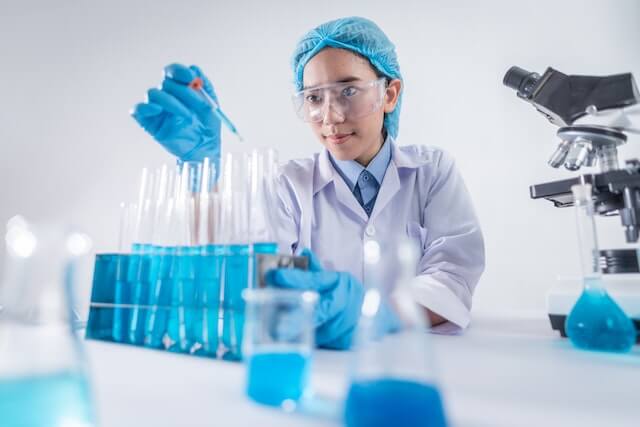 Pharmacists play a vital role in the healthcare system, ensuring the safe and effective use of medications. Their responsibilities encompass various tasks that contribute to patient care and medication management.
Pharmacists play a vital role in the healthcare system, ensuring the safe and effective use of medications. Their responsibilities encompass various tasks that contribute to patient care and medication management.
Here are 7 important things Pharmacists do:
1. Dispensing Medications
One of the pharmacists’ primary responsibilities is to accurately dispense medications prescribed by healthcare providers. They review prescriptions for accuracy, dosage instructions, and potential interactions with other medicines to ensure patient safety.
2. Patient Counseling and Education
Pharmacists provide valuable patient counseling and education regarding medication usage, potential side effects, and proper administration techniques. They offer guidance on optimal medication adherence, possible drug interactions, and lifestyle modifications to support the effectiveness of medications.
3. Medication Therapy Management
Pharmacists collaborate with healthcare providers to manage complex medication regimens and optimize therapy outcomes. They assess patient profiles, identify potential drug interactions or adverse effects, and recommend adjusting or optimizing medication therapy.
4. Medication Safety and Quality Assurance
Pharmacists are responsible for maintaining high standards of medication safety. They monitor medication recalls, ensure proper storage conditions, and verify the integrity of medication supply chains to prevent counterfeit or substandard drugs from reaching patients.
5. Collaborating with Healthcare Providers
Pharmacists work closely with physicians and other healthcare providers to ensure seamless coordination of patient care. They consult with healthcare teams, provide medication-related recommendations, and participate in medication reconciliation processes during care transitions.
6. Health Promotion and Disease Prevention
Pharmacists actively engage in health promotion and disease prevention efforts. They provide vaccinations, conduct health screenings, and offer guidance on lifestyle modifications, such as smoking cessation or weight management, to promote overall wellness.
7. Research and Evidence-Based Practice
Pharmacists contribute to the advancement of pharmaceutical knowledge through research and evidence-based practice. They stay updated with emerging medications, clinical guidelines, and treatment advancements to provide the most current and effective patient care.
How Much Does a Pharmacist Make
According to data from the Bureau of Labor Statistics (BLS), the median annual salary for pharmacists in the United States is $148,298 as of May 2023. However, the range falls between $139,728 and $157,957. Entry-level pharmacist earns $104,000, while those with 1-4 years of experience earn $114,000. Other pharmacists with 5-19 years of experience earn between $130,000 to $144,000. Pharmacists with 20+ years of experience earn $158,000.
Online Pharmacy School
Online pharmacy schools offer a flexible and convenient approach to acquiring the necessary education and training to become a pharmacist. With advancements in technology and virtual learning platforms, online pharmacy programs provide students with opportunities to pursue their Pharm.D. degree.
Here are the top 7 online pharmacy schools:
1. Massachusetts College of Pharmacy and Health Sciences Boston (MA)
MCPHS (Massachusetts College of Pharmacy and Health Sciences) provides an online Doctor of Pharmacy – Postbaccalaureate Pathway degree. This program aims at students with bachelor’s degrees in pharmacy and currently working as pharmacists in the United States. The program begins every fall and needs one in-person orientation in August. The program will cost you about $20,790.
2. Duquesne University Pittsburgh (PA)
Duquesne University provides an online Doctor of Pharmacy degree that can be completed in four years. Students get online and limited campus education during the first 3 years of the online PharmD program. The annual tuition for this university to study pharmacy is $61,346.
3. Shenandoah University Winchester (VA)
Shenandoah University provides three online pharmacy doctoral degree options: a part-time Nontraditional Doctor of Pharmacy, a full-time Doctor of Pharmacy/Master of Public Health dual degree, and a full-time Doctor of Pharmacy/Master of Science in Pharmacogenomics and Personalized Medicine dual degree. Full-time programs typically take 5 years to finish, with an Annual Tuition of $10,950.
4. Lake Erie College of Osteopathic Medicine Erie (PA)
Lake Erie College of Osteopathic Medicine’s online Doctor of Pharmacy degree is designed for distant learners to accomplish a PharmD in 4 years. The fourth year of this degree consists of an Advanced Pharmacy Practice Experiences rotation. It emphasizes the ability for a career in pharmaceutical sciences and drug development. Annual tuition for this program is $29,065.
5. Concordia University – Wisconsin Concordia
University – Wisconsin (CUW) provides a Doctor of Pharmacy and MBA dual degree program online. This 128-credit program is expected to take 4 years to finish. CUW provides a Lutheran Church-affiliated faith-based education. The degree program emphasizes combining PharmD knowledge with business management and organizational skills. The university has an Annual Tuition of $11,400.
6. University of Colorado Denver
The University of Colorado Denver (CU Denver) provides an online Doctor of Pharmacy in North American-trained PharmD, training students in clinical skills, cancer, infectious diseases, public health, and other fields. Students usually complete the curriculum in 2 to 6 years. The program can be done either full-time or part-time.
7. Creighton University
Creighton University provides students with two online doctoral degree choices: a Doctor of Pharmacy and a combination Doctor of Pharmacy/Master of Business Administration. Both programs are designed to be completed in four years of full-time study. Students complete clinical rotations during their third and fourth years of education. You can learn more here
Conclusion: Are Pharmacists Doctors?
The question of whether pharmacists are doctors is complex and multifaceted. Pharmacists are not medical doctors in the traditional sense. They are trained healthcare professionals with specialized knowledge in medication management and patient care. Pharmacists work closely with doctors and other healthcare providers to ensure the safe and effective use of medications.
